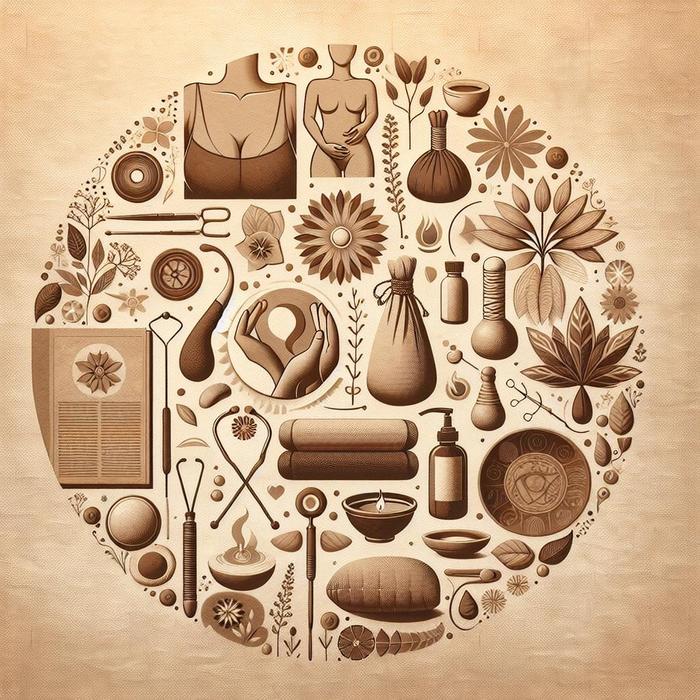Dealing with Clogged Ducts: Understanding the Problem and Exploring Solutions
Nursing mothers often face diverse challenges, one of which is dealing with clogged ducts during breastfeeding. This condition, characterized by a hard lump in the breast, can be painful and frustrating. If not properly addressed, a clogged duct may lead to mastitis, a more severe breast infection. The good news is, there are effective remedies available to help you manage this situation.
What Causes Clogged Ducts?
Several factors could cause a milk duct to become clogged. These can include irregular or infrequent feedings, ineffective milk removal, irregular pumping schedules, or wearing a bra that is too tight. By understanding these causes, you can take preventative steps to reduce your risk of developing blocked ducts. The John Hopkins Medicine website offers more insights into this topic.
Easing Discomfort: Techniques to Try
While dealing with clogged ducts can be distressing, there are several ways you can ease the discomfort and encourage the duct to clear:
- Feed Frequently: The more you nurse, the more milk you remove from your breasts, which can help unblock the clogged duct.
- Change Your Feeding Positions: This can ensure that all areas of the breast are adequately emptied. For more advice on feeding positions, check out this article on our website.
- Applying Heat: A warm compress applied before nursing can facilitate milk flow and help clear the blockage.
- Gentle Massage: Massaging the affected area towards the nipple during feeding can help to move the blockage along the duct.
- Stay Hydrated: Drinking enough fluids is essential for maintaining healthy milk production and preventing duct blockages.
Effective Remedies for Clogged Ducts
Alongside these self-help techniques, certain remedies can be highly effective in dealing with clogged ducts:
- Lecithin Supplements: Lecithin is a food supplement that can help to decrease the viscosity of the milk, thus preventing the formation of clogs. Always consult your healthcare provider before starting any new supplements.
- Over-the-Counter Pain Medication: Non-prescription medication such as ibuprofen can help to reduce inflammation and relieve pain.
- Professional Assistance: If self-help techniques and remedies don’t work, don’t hesitate to seek professional help. A lactation consultant can provide further support and guidance. The WIC breastfeeding website has a wealth of resources that might be helpful.
It’s important to remember that while a clogged duct can be painful and distressing, it is typically a temporary issue. Consistent application of the above techniques and remedies can alleviate discomfort and clear the blockage effectively.
Breastfeeding Tips: Preventing Clogged Ducts
Prevention is always better than cure. Here are some tips on how to prevent clogged ducts in the first place:
- Regular Feeding: Ensure that your baby is feeding at regular intervals and that your breasts are being effectively emptied.
- Perfect Your Latch: A proper latch is crucial to effective milk transfer. You can find tips on managing breastfeeding techniques in this blog post.
- Avoid Tight Clothing: Tight bras or clothing can compress your ducts and lead to blockages.
- Hydration and Nutrition: Adequate intake of fluids and a healthy diet are essential to maintaining good milk supply and preventing clogged ducts.
Understanding clogged ducts, their causes, prevention methods, and effective remedies can go a long way in ensuring a positive breastfeeding journey. Always remember that every mother’s experience is unique. It’s essential to find the methods that work best for you and your baby.
Consulting a Healthcare Professional
If you’ve tried these self-care methods and remedies but still continue to have issues with clogged ducts, it may be time to consult a healthcare professional. Your doctor or a lactation consultant can offer further help and solutions. Along with providing medical support, a lactation consultant can also assist in reviewing latch and feeding techniques, and offer specific suggestions tailored to your situation.
When to Seek Medical Help?
While a clogged duct can mostly be managed at home, there are situations where it’s best to seek immediate medical attention. This includes:
- Severe Pain: If the pain becomes severe and is not alleviated by over-the-counter medication.
- High Fever: A fever of 101°F (38.3°C) or higher could be a sign of mastitis, a severe infection requiring antibiotic treatment.
- Recurring or Persistent Clogged Ducts: Frequent or persistent clogs might signal a underlying issue needing further investigation.
You can learn more about the symptoms of mastitis from this informational article on the Medela website.
Mastitis: A Potential Complication of Clogged Ducts
Clogged ducts can, in rare cases, lead to a more severe condition known as mastitis. This often happens when milk remains trapped in the breast, leading to an infection. Symptoms of mastitis, aside from the aforementioned high fever, can include redness, warmth, extreme tenderness of the breast, and flu-like symptoms such as chills and tiredness. On the Cleveland Clinic website, you’ll find comprehensive information on this condition, from causes to treatment options.
Emotional Support: A Crucial Aspect of Dealing with Clogged Ducts
While all these mechanistic tips and remedies are helpful, it’s equally important to not overlook the emotional aspect of dealing with clogged ducts. Breastfeeding can be a challenging journey, and facing issues like clogged ducts can carry a significant emotional toll. Seeking support from family members, friends, or a postpartum doula can help in managing stress and maintaining a positive outlook.
Take care of Yourself: You’re doing great!
Above all, it’s essential for nursing mothers to understand they’re doing an amazing job in nourishing their baby, even when facing challenges like clogged ducts. It’s important not to blame yourself if you face this issue – it is very common and does not reflect on your ability to breastfeed. Always remember to be gentle with yourself, take care of your health, and seek help when needed. Breastfeeding might not always be easy, but it’s certainly worth the effort.
For more articles on breastfeeding issues, consider visiting Medical News Today and other similar online resources. Happy nursing!

